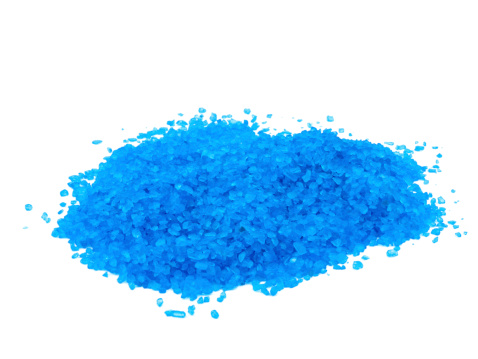‘Bath Salts’ Growing Drug Abuse Problem

Makers of the product call it ‘bath salts,’ but it’s anything but a soothing way to relax in the tub. Instead, these little packets of powder carrying names like Ivory Wave, Bliss, White Lightning, Hurricane Charlie and Vanilla Sky are akin to synthetic cocaine or methamphetamine – and very dangerous.
The American Association of Poison Control Centers issued a press release in 2011 raising the alarm about toxic substances marketed as ‘bath salts’ and said states are beginning to take action. The products cause increased blood pressure, increased heart rate, agitation, hallucinations, extreme paranoia and delusions.
What ‘Bath Salts’ Are
‘Bath salts’ contain powerful stimulants methedrone and methylenedioxypyrovalerone, also called MDPV, and there have been scattered reports across the country of drug-induced deaths accidental overdose or suicide.
How are these chemicals used? According to the American Association of Poison Control Centers, most patients calling the poison centers have snorted the substances. In at least one instance, the substance was injected into the individual’s veins.
Chemicals Still Legal for Sale in U.S.
The big difference between ‘bath salts’ and cocaine and methamphetamine, which are classified as controlled substances by the Drug Enforcement Agency (DEA), is that this latest designer drug – marketed as something not for human consumption — is still legal to be sold in the U.S. The same chemicals in the so-called ‘bath salts’ have also been sold as plant food, pond scum cleaner, and insecticide.
MDPV and mephedrone, according to the DEA, are chemicals of concern, but the agency is currently studying them. The result is that they’re legal at the federal level and in states that haven’t yet specifically prohibited them.
Recovering Addicts & Bath Salts
One of the emerging issues that many drug rehabs have seen is relapse among recovery drug addicts on these easily obtained drugs, as well as Spice or K2. Until recently it was impossible to test for the presence of these emerging drugs, but new tests have been developed for some although they can be prohibitively expensive. Those with drug addiction tend to be the most vulnerable to trying the latest drug, particularly if it feeds their denial (I didn’t abuse this before, it’s legally obtained, so it’s ok to try it now). Make no mistake, the use of bath salts or spice or other emerging designer drugs does constitute a relapse, and more and more treatment programs are seeing interest in bath salt rehab programs.
States Take Action
That’s changing quickly – at least at the state level.
After Louisiana had more than 160 poison control cases – and at least three deaths – linked to the chemicals in ‘bath salts,’ Louisiana Governor Bobby Jindal banned the chemical ingredients in the stimulants in an emergency executive order this month. The order will remain in effect for 120 days. In order to become permanent, the state Legislature will need to act.
On Wednesday, Florida became the latest state to enact a ban on MDPV, a ruling that stands for 90 days.
North Dakota instituted a ban in February 2010. The city of Huntington, West Virginia outlawed MDPV and mephedrone last December. Officials in Kentucky, Mississippi and other states are beginning to take similar steps, reports the Los Angeles Times.
Always on the hunt for ways to skirt laws, makers of these designer drugs try to stay one step ahead of laws on the books and enforcement to catch offenders. It’s a frequently noted problem. By the time laws catch up to the producers of such drugs, the perpetrators have switched the formulation and morphed the substance into something new.
The Los Angeles Times article noted that California hasn’t yet seen the critical mass of this problem like Louisiana. The California Poison Control System has only received one call on ‘bath salts.’
Parents Urged to Safeguard Children
Still, this issue isn’t going to fade away anytime soon. People can easily buy these ‘bath salts’ at any age. They are available on the Internet for about $20. Parents should be especially cautious and monitor their children’s spending closely, especially if there have been any reports of ‘bath salts’ usage in the area, if the kids talk about the latest cool and cheap way to get high, or parents notice unusual behavior that could indicate drug use.
Poison control centers across the country are ready to answer questions about ‘bath salts’ or any other product that could pose harm to users. Contact the poison control center at 1-800-222-1222.
Article Categories
- 12 Steps
- Addiction in the Family
- Addiction Infographics
- Alcohol Addiction
- Articles
- Drug Addictions
- Drug Rehab Center News
- Helpful Articles
- Holidays & Substance Abuse
- Mental Health & Addiction
- Real Life Addiction Stories
- Recovery Testimonials
- Relapse Prevention
- Substance Abuse Prevention
